The Little Helper: How and why to involve children in household chores
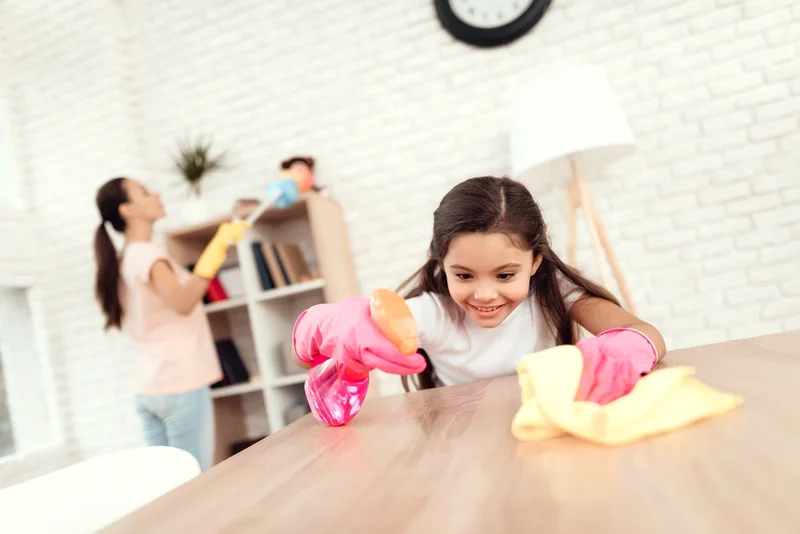
Photo source: 123rf.com
Teaching children independence and responsibility is usually easier said than done. And it's not about forcing children to do unpleasant tasks that we adults don't like, but about having them take on certain responsibilities according to their age and maturity to contribute to the family nucleus.
Perhaps one of the most important educational tasks of parents is to teach their child to be self-reliant so that he or she is well prepared for the challenges of life. This sounds simple at first, but it really isn't at all.
Involving children in everyday tasks is also parenting
Of course, not everything is done at once, but step by step you can accustom your child to everyday tasks and thus make him more independent. In most cases, toddlers even enjoy it.
Little helper. Photo source: 123rf.com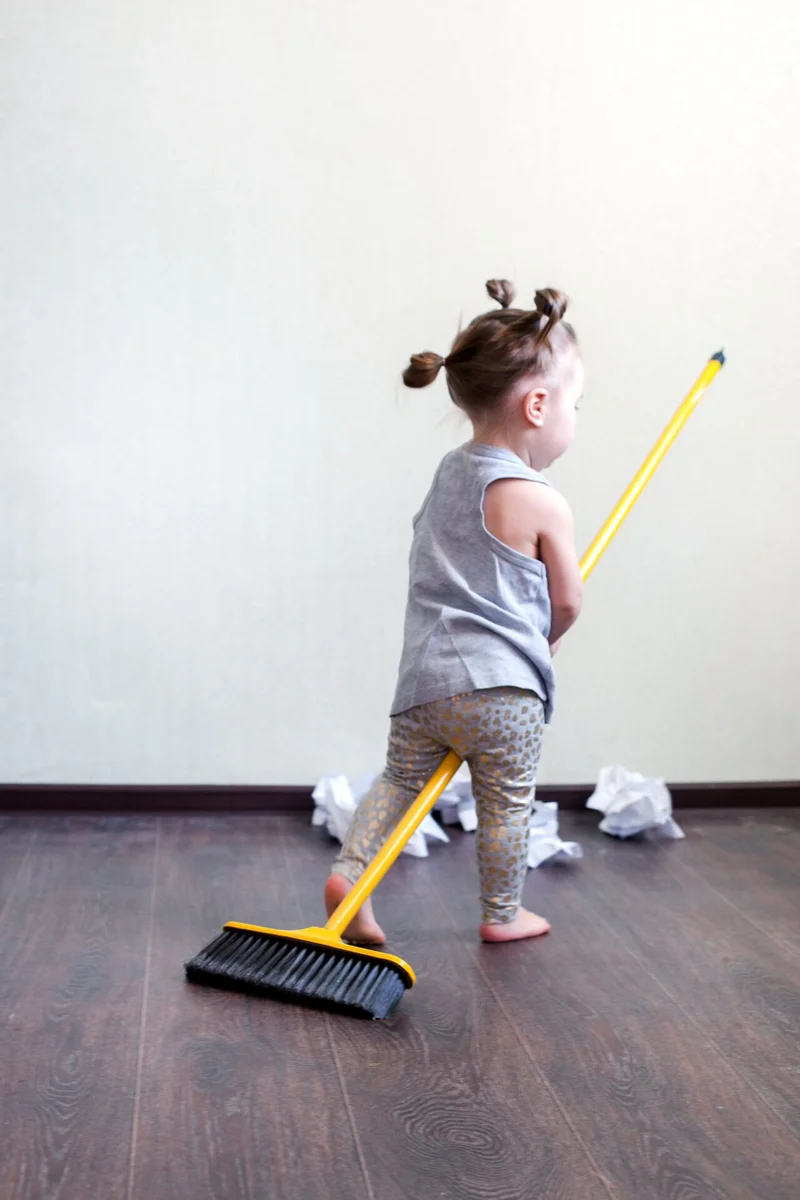
Yes, involving the youngest ones in household chores is more important than it may seem, because by participating in everyday tasks, children learn responsibility and cooperation, as well as the necessary equality not only between the sexes, but also between people and members of the same family. And it's not about forcing children to do unpleasant tasks that we adults don't like, but about them taking on certain responsibilities according to their age and maturity in order to contribute to the family nucleus.
Homemaking can also have a positive impact on the development of the youngest ones. The fact is that toddlers like to feel needed and capable, and daily chores can help us do that. In addition, if it is possible to organize certain tasks in free time with the family, it will be easier for children to show a tendency to cooperate.
But be careful, let's remember that doing tasks that are beyond children's capabilities will not help anyone, on the contrary, as it is a matter of approaching them gradually and pleasantly, or at least sufficiently so that it is not perceived as a punishment and does not cause rejection. But what everyday tasks can children do? Let's take a look at some examples, as well as the added benefits of working with young children at home.
Cleaning the apartment with the children. Photo source: 123rf.com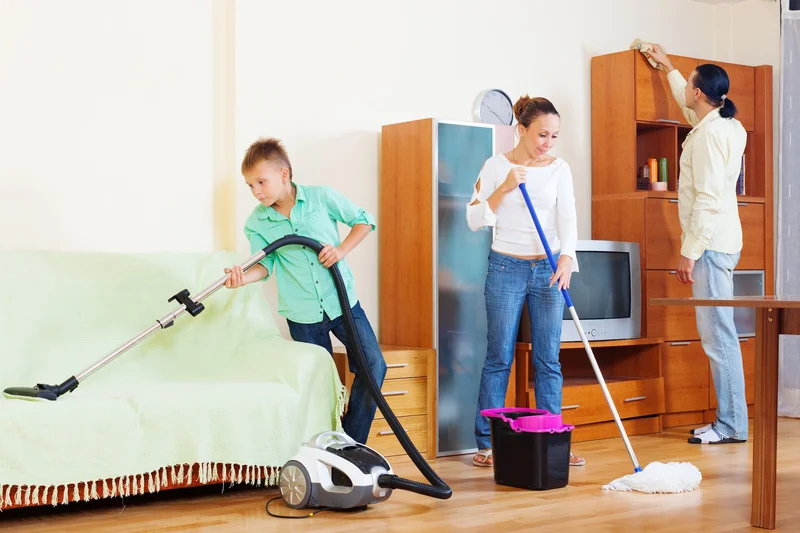
Additional benefits of children doing chores:
Empathy: Household chores help children better understand the needs of other family members. If a child is tasked with vacuuming the carpet, they will have a better chance of keeping their slippers clean because they will have a much better understanding of how long it takes to remove lint from the carpet.
Accountability: many tasks require the child to decide when and how to complete the task, and it is collaboration that also involves practicing accountability through time management and advance planning.
Self-esteem: children who are held accountable for certain household tasks develop strong self-esteem. After all, completing a task leads to feeling needed and confident in their ability to help others.
Little helper. Photo source: 123rf.com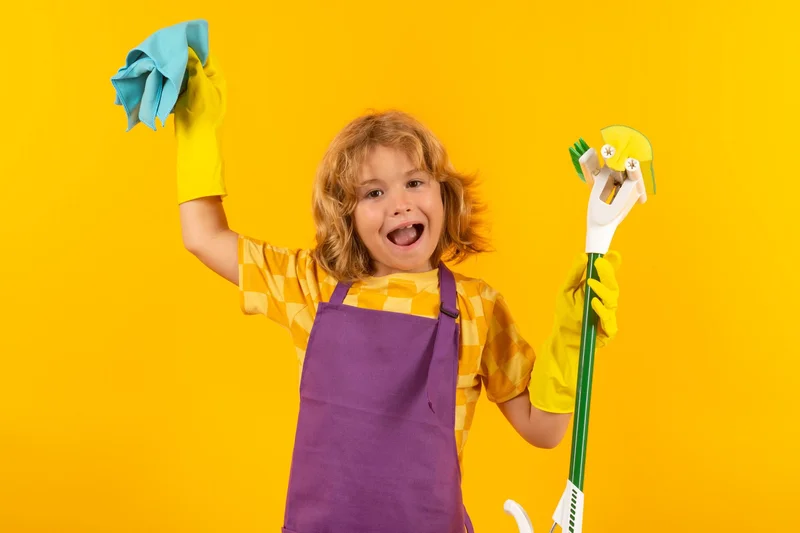
Types of homework that are appropriate for children depending on their age
Realizing that it would be good if children helped us more at home, it doesn't mean that it's always easy to determine what type of activity is or isn't appropriate for them depending on their age. As far as young children are concerned, every task should help them strengthen their muscles and help them develop their basic skills. Gross motor skills or fine motor and language skills can be taught by expecting them to do low-level household chores.
It is important to focus on skills that toddlers typically develop at this stage of their lives, such as one- or two-step tasks. Keep in mind that the youngest children always need supervision for all the tasks they perform, so when they reach their goals, they will feel more satisfied and happy knowing that their parents have seen them progress successfully. What the littlest ones can do:
- Feeding the pet;
- Picking up toys;
- Wipe lightweight plates and glasses with a towel;
- Wash themselves independently in the bathtub (with parental supervision);
- Put together pairs of matching socks after washing;
- Watering houseplants or getting dressed;
- Carry things, for example, dirty laundry to the washing machine or waste to the trash can.
Once toddlers have already acquired some skills in basic everyday tasks, they will be ready to move "to the next level". It is important to include both tasks that they can do on their own at this age and those that will require a little adult supervision. It is important to prioritize learning over quality and efficiency, i.e. it doesn't matter if the child fails at the task, what matters is that they are trying to do what their parents have asked them to do.
So, let's introduce new tasks:
- Pour juice, milk, or water into a glass;
- Sort toys;
- Set the table; especially with dishes that can't be broken;
- Make the bed and dust;
- Measure and mix ingredients for meals;
- Order food from a café or restaurant
.
Cleaning the apartment with the children. Photo source: 123rf.com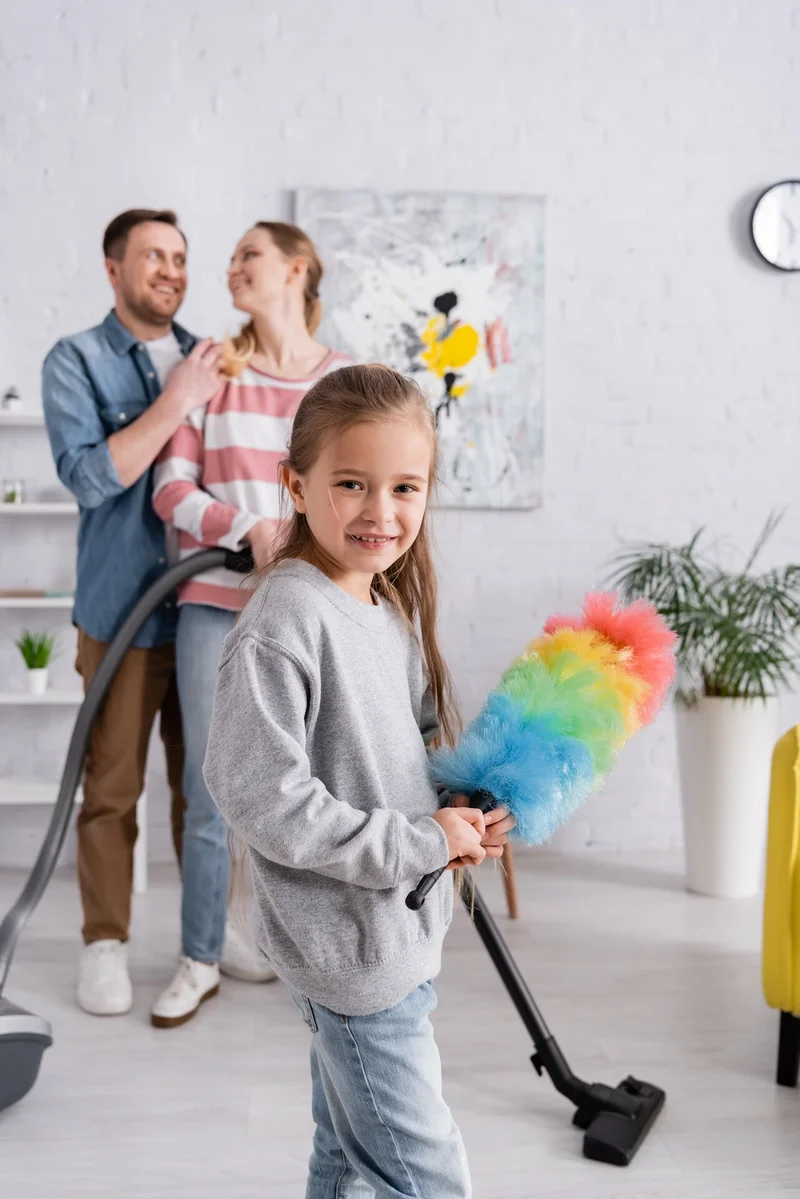
When children have already reached the elementary level, they will undoubtedly be ready to take on more responsibility and increase their level of independence. And although previous ideas required the presence of an adult, children further on can already perform some tasks unsupervised, such as:
- Bathing, dressing or brushing teeth;
- Making breakfast or lunch;
- Vacuum the room;
- Wash dishes or put dishes in the dishwasher;
- Pack a school backpack and complete homework for school independently;
- Keep a room clean;
- Fold and put away laundry for washing.
There are many practical benefits to involving children in daily household chores. In order to get the child to show interest in helping the parents, you can give it a playful form. You should never put pressure on the child or you will get the opposite result. By doing chores children learn to develop empathy, work ethic and appreciate their efforts and those of others. That's why starting early with small habits can help form a foundation of positive qualities and valuable behaviors that will benefit children for a lifetime.
Cleaning the apartment with the children. Photo source: 123rf.com
Read also: You I have the best: how to increase self-esteem in a child